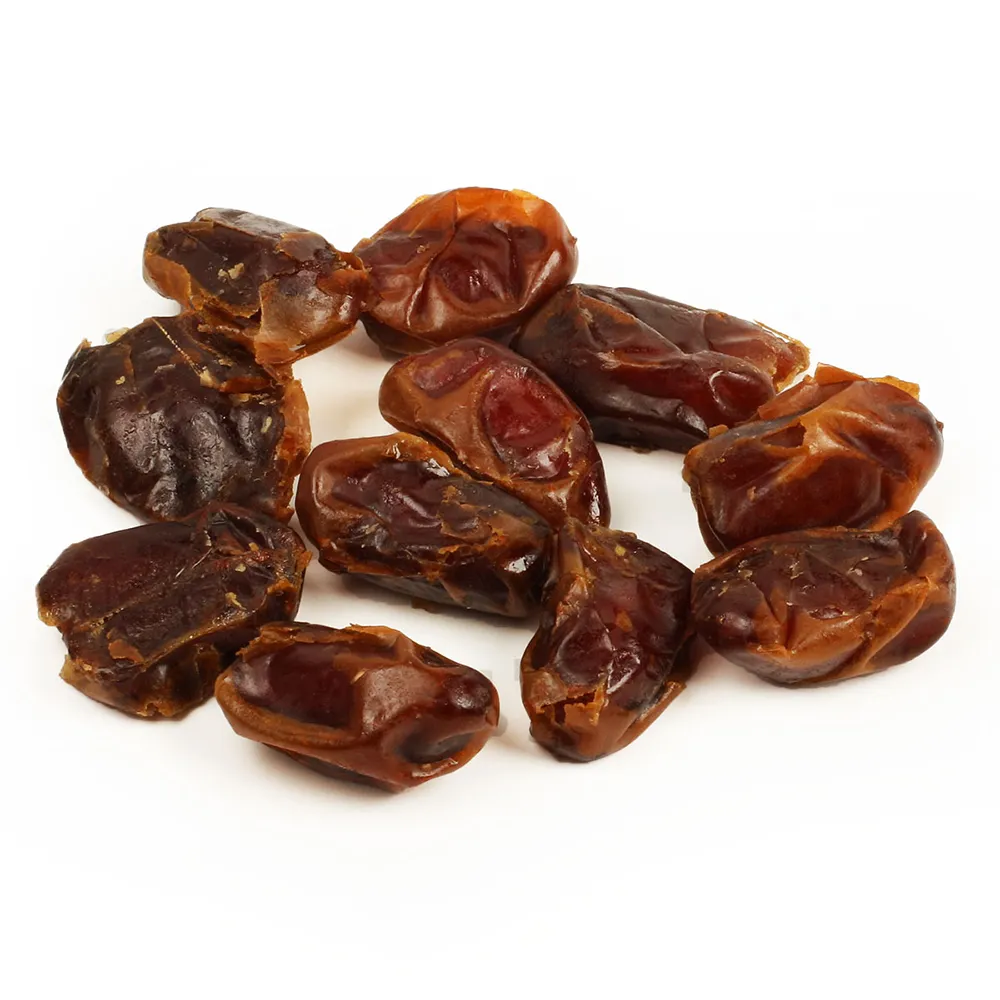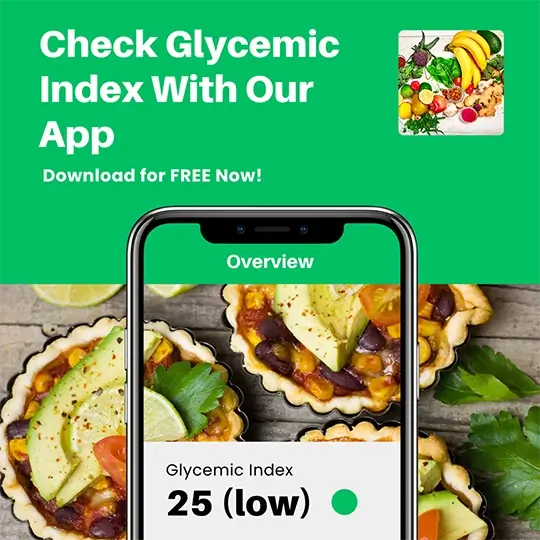
| Glycemic Index | Glycemic Load |
40
|
27.7
|
The glycemic index (GI) of dried dates equals to 40, which classifies it as a low GI food. The glycemic load (GL) of dried dates is equal to 27.7, which classifies it as a high GL food.
| Nutrition Facts | |
| Calories (kcal) | 292 |
| Carbohydrates (g) | 69.2 |
| Proteins (g) | 2.5 |
| Fats (g) | 0.5 |
100 grams of dried dates contain 292 kcal (1222 kJ), 2.5 grams of proteins, 69.2 grams of carbohydrates, and 0.5 grams of fats.
Dried dates are a type of dried fruit that are made by removing the water content from fresh dates. They are a popular snack food and are also used as an ingredient in many recipes. Dried dates have a sweet and chewy texture and are often consumed on their own or mixed with nuts or other dried fruits.
Nutritional Benefits:
Dried dates are a good source of fiber, vitamins, and minerals. They contain high levels of natural sugars, which provide a quick burst of energy. They are also low in fat and sodium, making them a healthy snack option. One serving (about 5-6 dried dates) contains approximately 120 calories, 2 grams of fiber, and 1 gram of protein. They are also a good source of potassium, magnesium, and iron.
Drawbacks: Despite their many nutritional benefits, dried dates are also high in calories and sugar. While they are a good source of natural sugars, they should still be consumed in moderation, especially for those with diabetes or other blood sugar control issues. Additionally, some dried dates may be treated with sulfur dioxide to preserve their color and texture. This can cause allergic reactions in some individuals.
Nutrition Facts:
A serving of dried dates (about 5-6 dates) contains approximately:
- 120 calories
- 0.2 grams of fat
- 31 grams of carbohydrates
- 2 grams of fiber
- 1 gram of protein
- 200 milligrams of potassium (6% DV)
- 21 milligrams of magnesium (5% DV)
- 0.9 milligrams of iron (5% DV)
Health Benefits:
- Digestive health: Dried dates are a good source of dietary fiber, which can promote digestive health and prevent constipation. They also contain polyphenols, which have been shown to have anti-inflammatory effects in the digestive tract.
- Heart health: Dried dates are a good source of potassium, which can help regulate blood pressure and reduce the risk of heart disease. They are also low in sodium, which can further promote heart health.
- Bone health: Dried dates are a good source of calcium, which is important for maintaining strong bones and teeth. They also contain magnesium, which can help with the absorption of calcium.
- Energy booster: Dried dates are a good source of natural sugars, which can provide a quick boost of energy. They are also a good source of complex carbohydrates, which can provide sustained energy over a longer period of time.
- Immune system support: Dried dates contain antioxidants, which can help boost the immune system and protect against free radicals.
Diet Incorporation:
Dried dates can be incorporated into a variety of diets, including vegan, vegetarian, and gluten-free diets. They can be eaten on their own as a snack or added to trail mix, oatmeal, or smoothies. They can also be used as a natural sweetener in baking and cooking. It is important to remember to consume dried dates in moderation due to their high sugar and calorie content.
In conclusion, dried dates are a healthy snack option that can provide a variety of nutritional benefits. They are a good source of fiber, vitamins, and minerals and can help promote digestive, heart, and bone health. However, they should still be consumed in moderation due to their high sugar and calorie content.


